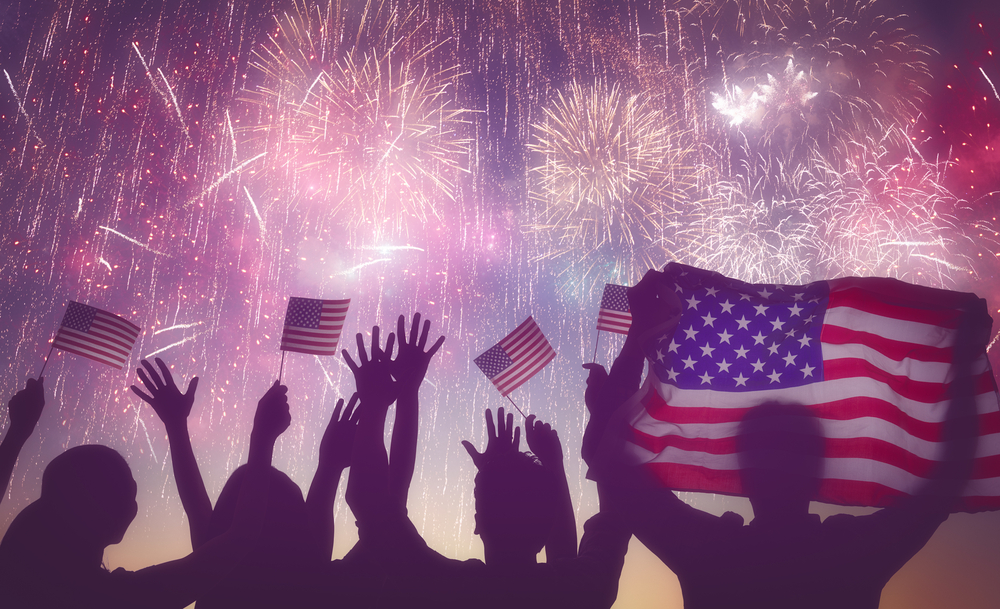Is 4th of July firework damage to my home covered?

The Fourth of July is just around the corner and fireworks are often on the top of the list for this day of celebration. While fireworks can be a fun way to celebrate the holiday, they can also be a hazard. Fires and injuries can spring up and whether or not your homeowners insurance will help cover the cost depends on a few factors. The majority of damage caused by fireworks will be covered by your homeowners policy but exceptions can leave you covering the cost in some situations.
The Damage Can Be Severe
Fireworks can result in serious damage, here are just a few statistics according the NFPA:
- 18,500 fires per year are started by fireworks
- 1,300 structure fires and over 300 vehicle fires
- Fires resulted in $43 Million in property damage
- 12,900 treated for firework related injuries in 2017
- Children 15 years and younger are responsible for 36% of the injuries
In the month of July, an average of 280 people end up in emergency rooms every day due to fireworks related injuries. It’s not just major fireworks that cause damage and injuries. Sparklers can burn at up to 1,200 degrees and caused over one-quarter of firework injuries in 2014.
Will My Insurance Step Up?
In the majority of situations, your insurance will cover damage caused by fireworks but coverage will vary by insurer so always check with your agent before lighting up your own fireworks show. However, there can be situations where your insurance will deny coverage and you could end up on the hook for the damage.
If fireworks land in your gutter and set your house on fire you should be covered. Homeowners insurance covers accidental fires and any damage it would cause. The same is usually true if a stray bottle rocket goes through your neighbor’s window and starts a fire or simply damages the window or side of their home. This would fall under the liability portion of your policy.
A malfunctioning firework that injures one of your guests should also be covered as well but if you decide to get into a bottle rocket war with your friends, injuries and damage may not be covered. Insurance policies almost always exclude intentional damage and a bottle rocket war or intentionally throwing any firework at a person or structure could leave you holding the bag when it comes to damages.
If you manage to injure yourself with fireworks you will have to rely on your health insurance to cover the medical bills as you cannot file a claim for your own injuries on a homeowners policy.
Where You Live is Important
Insurers will always deny claims that result from illegal actions so if fireworks are outlawed in your state, and you light them up anyway, the resulting damage will not be covered, leaving you to pick up the tab on repairs or hospital bills if someone is injured. If you are unsure of your state laws regarding fireworks call your local police station or check with your insurance agent to see if you are covered.
Currently, these states ban all fireworks, regardless of whether it is the Fourth of July or not:
In these states, only sparklers and other less dangerous fireworks are allowed:
Even if your state allows certain types of fireworks, others may be outlawed so if you head across state lines to pick up some “real” fireworks, you could end up with a denied claim if an outlawed firework causes the damage. The best advice is to only use fireworks that are legal in your state.
Laws related to fireworks vary by state and in some states you may need a permit. Always check local fireworks laws before lighting up the sky.
A Few Safety Tips
Here are just a few safety tips for handling fireworks from the American Pyrotechnics Association, National Council on Fireworks Safety and the Insurance Information Institute:
- Never point fireworks at other people
- Use fireworks outdoors on a flat, hard surface in an open area
- Always keep kids at least 30 feet away from fireworks
- Wear eye protection
- Keep a fire extinguisher, bucket of water or hose nearby to put out a fire quickly
- Always put used fireworks into a bucket of water
- Alcohol and fireworks are never a good idea, assign a designated fireworks person
- Always have adult supervision when handling fireworks
- Keep pets inside and away from the action
- Never try to relight “duds”
